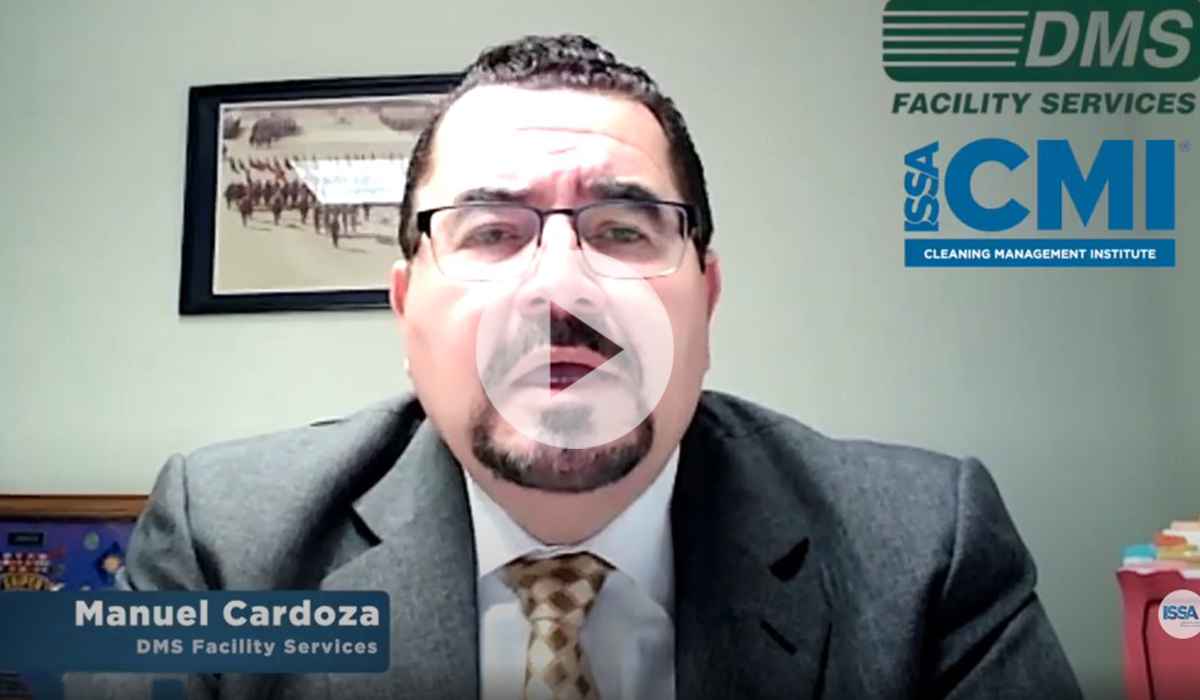Learn about the journeys of success through your fellow members with individual certifications through ISSA’s Cleaning Management Institute (CMI) and companies who have positively changed their trajectory through becoming certified in the various CMI Certification programs.
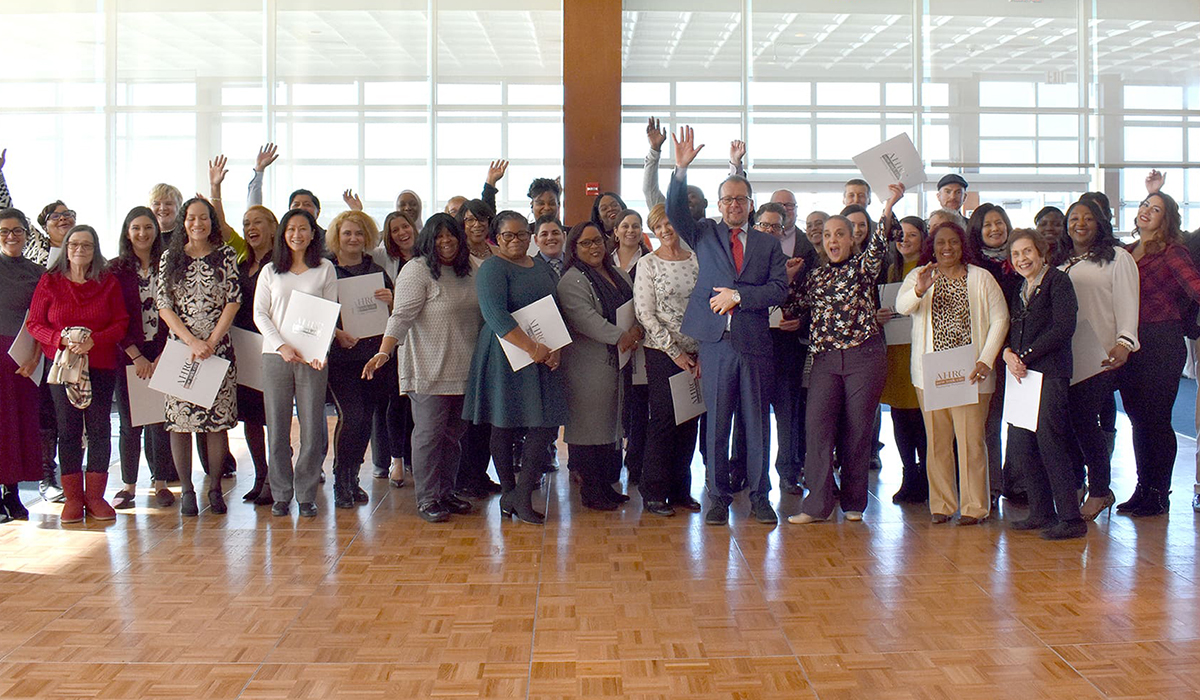 Case Study
Case StudyAHRC New York City provides clean facilities and bright futures with CMI training
AHRC New York City provides clean facilities and bright futures with CMI training
Overview
 Learn about the journeys of success through your fellow members with individual certifications through ISSA’s Cleaning Management Institute (CMI) and companies who have positively changed their trajectory through becoming certified in the various CMI Certification programs.
Learn about the journeys of success through your fellow members with individual certifications through ISSA’s Cleaning Management Institute (CMI) and companies who have positively changed their trajectory through becoming certified in the various CMI Certification programs.
These fellow professionals value certification because it provides value added services to their customers. Undergoing certification, either as an individual or as a company has proven to be a stepping stone to greater opportunities of career development, promotion, increased customer based or more return on investment in certification dollars.
Solution
After reviewing several options, AHRC found CMI’s Custodial Technician Training and Certification program, which helps frontline custodians learn basic and advanced skills in all areas of commercial building cleaning. The Basic Level includes six modules for daily maintenance tasks, such as customer service, the chemistry of cleaning, and the basics of hard floor and carpeted surfaces. Its Advanced Level contains three modules and focuses on project-style tasks. Both programs require a certification exam.
“CMI’s consistency and uniformity allows us to train a wide range of employees with different skill levels but still use the same set of tools and instructions,” said Moran. “For the last five years, we’ve used CMI’s certification program and expect to have more than 350 employees and clients take part in the next fiscal year.”
Results
ISSA’s CMI program has made a significant impact on AHRC’s offerings, and has not only impressed clientele, but helped them obtain the skills and knowledge for a successful career and future. Some of the major benefits AHRC has realized include:
Consistent cleaning results
The more people AHRC trains with CMI’s program, the more consistent cleaning results it observes. By having all its custodial employees certified, AHRC can prioritize the health of its staff and clients by providing clean, safe facilities.
Improved operations
Over the last several years, AHRC has seen an improvement in its cleaning operations. Customers comment on and enjoy seeing a clean facility, and certified employees understand the requirements needed to keep clients healthy and safe. Although there are several key topics covered in the certification programs, the safety component has been an especially important and relevant topic for AHRC, as it’s vital to keep individuals with intellectual and developmental disabilities safe at all times.
Better opportunities
When a client goes into a job interview, AHRC aims to provide the necessary skills and experience to help them succeed. With CMI’s certification program, clients have an advantage during interviews with janitorial companies, as they prefer candidates to be certified and trained. Additionally, CMI certification provides emblems that can be featured on employee uniforms, which leaves a positive impression on potential clients.
“For anyone who is thinking of using CMI as a training component to improve their operations, I would highly recommend it,” said Moran. “Not only are the tools a valuable resource for both our employees and clients, but the curriculum has continually provided numerous opportunities for all of us that we wouldn’t have experienced without ISSA’s support.”
 Case Study
Case StudyFacility director creates new opportunities through CMI training & certification
Facility director creates new opportunities through CMI training & certification
Overview
 Proper facility maintenance helps schools realize many benefits. Clean educational facilities attract students, staff, and even much-needed donors. Maintaining hygiene also helps create a barrier against communicable disease outbreaks that lead to extended absences and negatively impact learning. Cleaning is also the best form of preventive maintenance, which ultimately saves time and money for often underfunded schools.
Proper facility maintenance helps schools realize many benefits. Clean educational facilities attract students, staff, and even much-needed donors. Maintaining hygiene also helps create a barrier against communicable disease outbreaks that lead to extended absences and negatively impact learning. Cleaning is also the best form of preventive maintenance, which ultimately saves time and money for often underfunded schools.
In the past, many schools had dedicated training departments led by a qualified instructor to offer ongoing learning and certification. However, over the years, many of these departments have been dissolved, and training frequently falls on retirees who train their replacements.
“The transition away from organized facility management training has led to large inconsistencies in quality, methodologies, and standards in the educational sector,” said Dell Birt, school site operations director and plant manager.
Solution
In researching which organizational body set the highest industry standard in facilities management, Birt discovered CMI and its Custodial Technician Training and Certification program. Developed more than 50 years ago, the CMI program covers several modules of important cleaning topics ahead of a certification exam. Today, it remains a sought-after method for advancing the development of front-line custodians and facility directors.
In addition to focusing on effective cleaning techniques and technologies, CMI stays up to date on key research and developments, such as the emergence of communicable diseases, to ensure its trainees know how to maintain the safety of facility occupants and visitors. The program offers basic and advanced levels, and both on-site and online course options for added flexibility.
Birt completed the program and was recognized with the Certified Custodial Technician (C.C.T.) designation. He feels that the knowledge participants acquire can be tailored to meet the needs and budgets of different types of sites and organizations. He also appreciates that the program emphasized safe and effective cleaning practices, which are especially applicable for today’s age of superbugs.
“CMI is the most superior certification program as it is structured around better feedback from many trades and industry professionals to establish its best practices. That is why most major organizations require a current CMI certification to apply for their facility management positions.”
 Case Study
Case StudyNormal, Illinois transforms custodial operations staff into world-class employees
Normal, Illinois transforms custodial operations staff into world-class employees
Overview
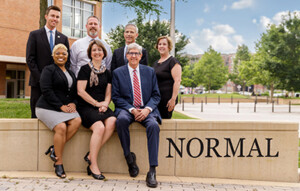 The Town of Normal, Illinois, is anything but normal. From the historic Normal Theater to the iconic Children’s Discovery Museum, the town maintains several popular attractions thanks to its dedicated Facilities and Energy Management Department. The department oversees building operations and maintenance for 18 different municipality facilities to provide safe, clean, and welcoming environments for the town’s 52,000 residents.
The Town of Normal, Illinois, is anything but normal. From the historic Normal Theater to the iconic Children’s Discovery Museum, the town maintains several popular attractions thanks to its dedicated Facilities and Energy Management Department. The department oversees building operations and maintenance for 18 different municipality facilities to provide safe, clean, and welcoming environments for the town’s 52,000 residents.
In 2012, the department was outsourcing facility maintenance and decided to review its training program for custodial staff, which revealed several opportunities for improvement. To ensure its busy, historic, and challenging facilities received the same level of care and attention, the Normal decided it was time for a new approach.
“We wanted to provide all employees with the same level of advanced knowledge, professionalism, and skills needed to succeed,” said Mark Clinch, director of facilities and energy management for Normal. “Having previously outsourced facility maintenance, it was time to bring it all in-house and develop an updated and effective training program.”
Solution
To streamline operations and standardize processes across its municipality facilities, the Normal implemented professional development training in 2012 with the help of ISSA’s Cleaning Industry Management Standard (CIMS) and Green Building program (CIMS-GB).
CIMS was created “by the cleaning industry and for the cleaning industry” to support building service contractors, in-house cleaning service providers, and residential service providers. CIMS-GB adds a green cleaning and sustainability component, and helps organizations secure points toward the U.S. Green Building Council’s Leadership in Energy and Environmental Design (LEED) rating system.
“CIMS-GB provided us with the framework to efficiently and effectively self-assess our operation objectively,” said Clinch. “As our department aligned itself with the new program, I witnessed continuous improvement among our staff, along with an increased understanding of the value of best practices.”
Over the past eight years, several different departments within Normal, including the police, parks and recreation, vocational training, and local school districts, have worked together to successfully implement CIMS-GB certification.
“Ultimately, the program has helped transform our team into world-class employees,” said Clinch. “Achieving certification validated the professional credibility of our staff and operations.”
Results
With the CIMS-GB program in place, Normal realized numerous benefits, including:
Stronger leadership
One of the most significant changes the department experienced was the immediate impact the CIMS-GB program had on servant leadership. The program helped train staff to become accountable and reliable by providing credible resources for problem solving and task implementation while at work.
Improved quality control
The CIMS-GB program utilizes an app-based software that allows Normal to measure and report daily tasks, output, projects, and more. This provides valuable insight and performance metrics that the department can leverage to increase productivity. Having access to the program’s industry guidelines also allowed Normal to share best practices across departments, thereby transforming the municipality.
Increased employee morale
The training program treats staff as professionals. This helps boost morale and reinforces employee success. By cultivating those relationships, the management team in Normal has built an increased level of trust among all of its staff members.
Community appreciation
The certification program helped Normal establish credibility within the municipality, which resulted in increased appreciation from the community. For example, the training and certification program at Heartland Community College provides employees with 0.5 credit hours. Participating employees also receive honors.
“As a public servant, our goal is to provide tremendous service at a great value so resources can be invested to maximize the benefit to our community overall. Certification took us from philosophy to a tangible reality and the community has responded with an outpouring of praise,” added Clinch.
 Case Study
Case StudyPrinceton University creates high performance team with CMI & CIMS certification
Princeton University creates high performance team with CMI & CIMS certification
Overview
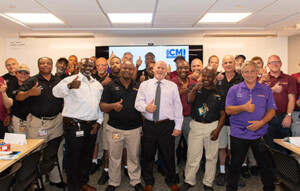 Three months after stepping into his role as assistant director of building services at Princeton University, Richard Brown was asked to share his observations and thoughts about the department, the team and the performance of both.
Three months after stepping into his role as assistant director of building services at Princeton University, Richard Brown was asked to share his observations and thoughts about the department, the team and the performance of both.
Brown had high regard for his team and the core values that guided them in “fostering a culture of teamwork, innovation, integrity, inclusiveness, respect, and sustainability.” While everyone on the team worked hard, Brown recognized that the team could do more by working smarter, not harder, and by improving communication in all directions.
Brown proposed that the department invest in professional development for the 44 supervisors, managers, and team leaders working in the 300-person department. Having previously achieved certification as a CMI Custodial Supervisor and Trainer, Brown appreciated the value of the program and understood how it could benefit the department and individual employees alike.
“In my previous years of work experience the view of cleaning as an industry and profession was general in scope,” said Brown. “The new product information and ad hoc advice I received from local distributors was helpful, but I soon learned it was far from enough.
“Through the CMI Custodial Supervisor and Train the Trainer Certification, I realized the scope and value of a professional approach to cleaning. I adopted a much more customer service-focused mindset and began staying ahead of potential problems by becoming predictive and proactive instead of reactive.”
Brown credits the certification courses as helping him learn how to analyze data in proper context, recognize best practices, achieve standards of clean, excel at customer service, plan and strategize, and leverage tools like soft skills, hard skills, equipment, staffing, software, and culture. Introducing employees to a more professional leadership mindset would be key to driving improvement across the department.
Solution
ISSA CMI Custodial Supervisor Certification recognizes the role that custodians play in efficiently maintaining sanitary and safe buildings. The course’s four sections each cover a particular area of supervising and managing custodial maintenance work. From the development of leadership qualities to technical workplace skills like incorporating technology and setting processes and procedures to recruitment, hiring, and quality assurance, the course includes information that will help attendees improve operations and advance their careers.
Brown’s proposal for CMI Custodial Supervisor Certification training was embraced by Brown’s leadership team and employees participated in five days of training.
“Some team members have participated in internal management training, whereas others had not experienced professional development opportunities beyond on-the-job training for new frontline employees,” said Brown.
Results
After on-site training was complete, a four-question survey validated employee pride and appreciation. Even the most tenured team members expressed thanks for the program, its energetic instructor, applicability of the course content, and most of all, the fact that the university invested in their personal career development.
“The participants were enlightened and inspired,” said Brown. “We experienced a genuine cultural shift and new ideas began to emerge from team members at all levels.”
The cultural shift has since been fostered by monthly one-on-one interviews with the 13 supervisors who participated in the certification. These “Development of Plan” discussions gather feedback—questions, suggestions, ideas, and concerns—that leadership uses to guide the continued revitalization of the Building Services Department. In addition, the building services team continues to reference the CMI Certification training manual, regularly scheduling deep dives into chapters and topics in the spirit of continuous quality improvement scheduled for 2020.
“Fostering a culture of open and honest communication is absolutely fundamental,” said Brown. “When team members understand that their voices are important and appreciated, we are better able to realize our core values of teamwork, innovation, integrity, inclusiveness, respect, and sustainability.”
Those who successfully achieve CMI Custodial Supervisor Certification are encouraged to continue their professional development through CMI Train the Trainer Certification. The team was invited to prepare written essays, outlining how additional certification will help them achieve their professional goals and benefit the department.
“Our responsibility as leaders is to strategically deliver resources to meet operational requirements,” said Brown. “To achieve this, we must recognize that the most valuable resource any organization possesses are its team members. Therefore, investing in their continued professional development is critical to organizational advancement.”
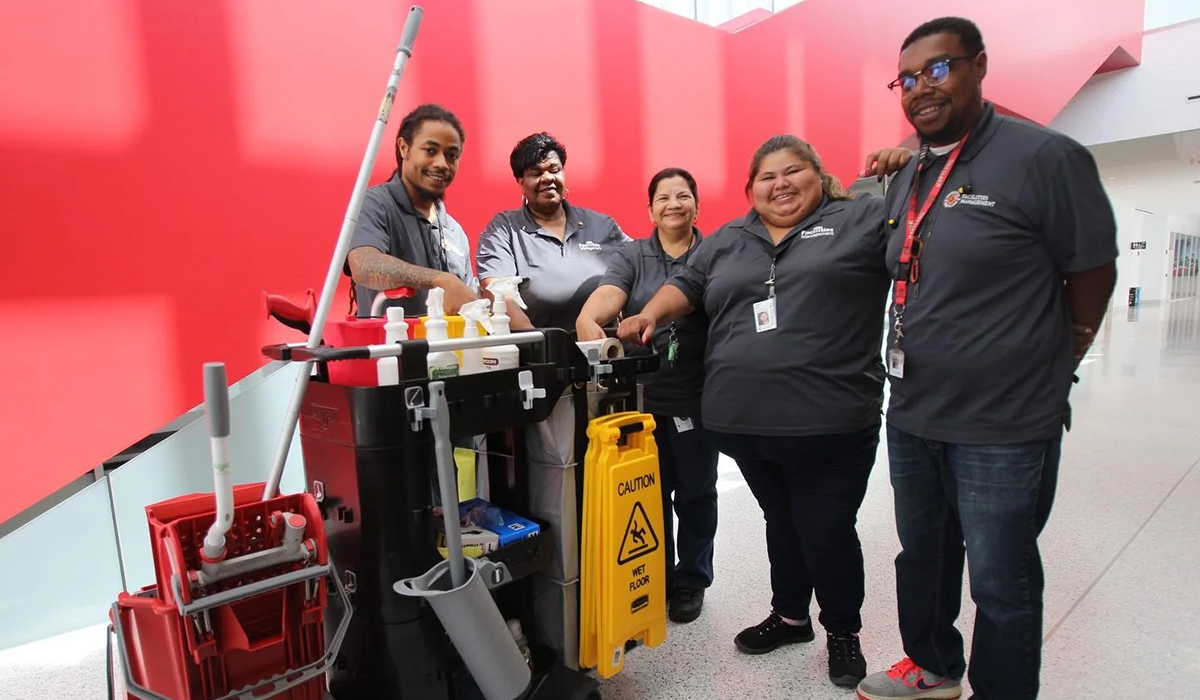 Case Study
Case StudyMontgomery College supervisor advances his career with CMI Bootcamp
Montgomery College supervisor advances his career with CMI Bootcamp
Overview
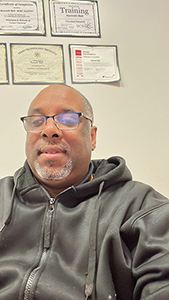 When a building presents itself as a clean and welcoming facility, it shows occupants that their wellbeing is prioritized. Ensuring that your facility is exceeding cleanliness and safety standards starts with a professionally trained maintenance staff. This means seeking out employees who are dedicated to the training and learning requirements needed to meet today’s expectations.
When a building presents itself as a clean and welcoming facility, it shows occupants that their wellbeing is prioritized. Ensuring that your facility is exceeding cleanliness and safety standards starts with a professionally trained maintenance staff. This means seeking out employees who are dedicated to the training and learning requirements needed to meet today’s expectations.
Employees like Kenneth Bell, who has been in the cleaning industry since 2008, are an example of utilizing resources around you to develop your career. Bell’s work ethic and passion for facility management have given him a long and successful career in the cleaning industry. Access to educational programs and courses that provide insight into maintaining facilities allowed Bell to understand how facilities can thrive in a clean and safe environment.
“I started working in the janitorial industry at age 19, cleaning for a bookstore in Rockville, MD. From there, I did janitorial work for department stores, carpet care businesses and then became a supervisor at a hospital,” said Bell. “Once I started as a supervisor at Montgomery College in 2015, I became certified as a professional cleaning instructor through ISSA’s CMI Supervisor & Management Bootcamp. This opportunity was an eye-opening experience in cleaning processes, and I realized that cleaning is mostly about safety, not just the appearance of a room. I now currently hold the position of the Housekeeping Manager over the Athletic and Facilities Housekeeping Department at Montgomery College.”
Solution
Kenneth’s role included managing a team of 3 supervisors and 10 Buildings, which includes a 50,000-seat Football Stadium, 18,000-seat basketball Arena and a host of other athletic stadiums and sporting complexes. After becoming fascinated with proper cleaning and maintenance techniques through ISSA’s CMI, Bell received his Custodial Technician Training and Certification in 2020. The CMI course includes six modules for daily maintenance tasks, such as customer service, the chemistry of cleaning, and the basics of hard floor and carpeted surfaces. The advanced course contains three modules and focuses on project-style tasks.
“The online format makes the course extremely accessible,” said Bell. “You can complete the courses and learn at your own pace. Access to various classes makes it very convenient to further your knowledge and get more skills under your belt. The trainers were highly informative and taught the class in an easy way to break down and understand.”
As cleanliness expectations continue to change and evolve, it’s vital to have a maintenance staff that is up to date on cleaning protocols. This includes having a deeper understanding of protecting building occupants through proper cleaning, sanitization and disinfectant measures. Courses in the program like the Chemistry of Cleaning, provide lessons into how certain cleaning chemicals react together and how this can impact whether areas in your facility are thoroughly cleaned.
Results
ISSA’s CMI program has made a significant impact on Kenneth’s career. He currently leads as the Housekeeping Manager at the University of Maryland. It has not only impressed his supervisors but helped him obtain the skills and knowledge for a successful future. Some of the major benefits the CMI program has given Kenneth include:
Supporting other team members
Completing the CMI program allowed Kenneth to take the knowledge and skills he gained and help teach them to other employees. There are many skills included in the course that are not often taught in basic janitorial education. This gave Kenneth the confidence to lead his team through new protocols and cleaning methods that can increase facility safety.
Improved facility care
Since Kenneth received his certification, Montgomery College has seen a significant increase in his skills and the cleanliness of the school. The program takes cleaning to a new level which helps create a cleaner and safer environment for occupants. Additionally, the course provides insight into upholding the appearance of facilities through proper cleaning techniques that can help prevent building damage and costly repairs.
Increased skills and knowledge
Kenneth felt that he was able to go beyond what his supervisors at Montgomery College needed him to do because of the training he received through ISSA. This not only offers an advantage to those who obtain the CMI certification due to advanced training but also helps build confidence to maintain a building properly.
“My biggest piece of advice is to jump on this training as soon as you can,” said Bell. “You’re not going to find any better in the cleaning industry. I appreciate all that they’ve shown me and given me this amazing career path.”


